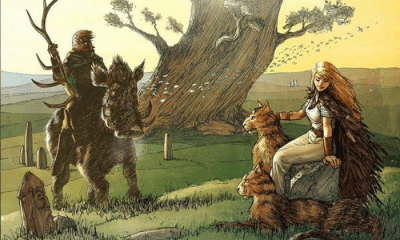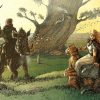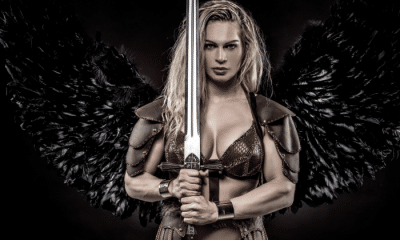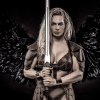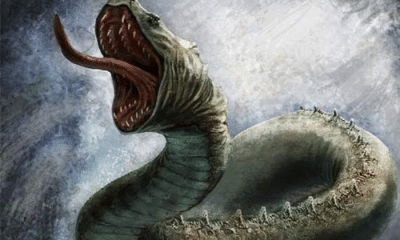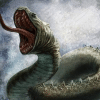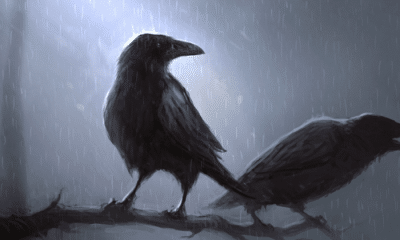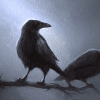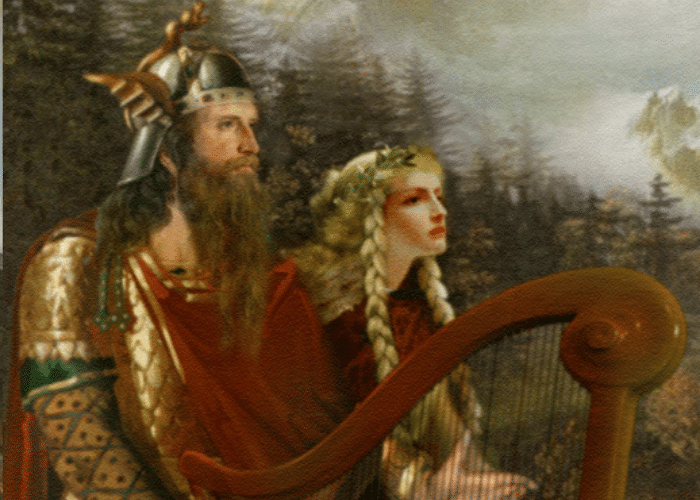
Norse
Who Was Bragi in Norse Mythology?
Who Was Bragi in Norse Mythology?
It might surprise you that the warlike Vikings worshipped a god of poets, but Bragi was revered for his wit and intelligence instead of his strength.
When one thinks of Norse gods, they often picture a series of strong and temperamental warriors. Even the wisest of them, such as Odin, was known for his strength in battle and his magical weapons.
Among the gods of Asgard, however, there was one who was never known to fight. In fact, his most famous surviving appearance in written legends calls him a coward for never wanting to fight.
While Loki’s claim that Bragi was a coward is refuted by Bragi’s reply that he would behead the trickster if they were outside of their host’s hall, the fact remains that there are no known accounts of Bragi fighting. Even when his wife was kidnapped, he was not mentioned.
Bragi, however, was one of the most revered gods despite his lack of physical feats. His power lay in his mind and in his dominion over poetry.
As the god of poetry, Bragi seems like an unlikely addition to the Norse pantheon. In truth, however, it made him one of the chief gods of the Norse culture and the people who relayed its stories.
Bragi and Poetry
In Norse mythology, Bragi was the god of poetry and music.
His name comes from the Old Norse word bragr, or “poem.” The word bragr can also refer to his nobility as a word for “first” or “chief.”
It is unclear which meaning gave Bragi his name. Some historians believe that the homonym could have been used intentionally.
Int he Prose Edda, Snorri Sturluson described Bragi as the wisest and most eloquent of all the kids. Sturluson claimed that wise men and women alike were called bragr because of him.
Skalds were also known as bragr. These poets played an important role in Norse life.
The Prose Edda is one of the few known accounts that also says that Bragi is a son of Odin.
The precise term used, however, could mean that he is not literally Odin’s child. The term “wish-son” could also apply to someone with another family relationship such as a nephew, younger cousin, or even an adopted relative.
Whether or not he is Odin’s son, the identity of Bragi’s mother remains unclear.
Some historians think that the most likely mother of Bragi is Gunnlod, the giantess who once guarded the Mead of Poetry. Odin seduced her to steal the mead and the relationship would provide the source of Bragi’s powers.
Odin’s wife Frigg seems unlikely. In another scene from the Prose Edda she implies that she has no son in the room when Bragi is nearby.
More clearly defined than his parentage is Bragi’s marriage. He is the husband of Iðunn, the goddess of youth.
Iðunn is most well-known for the story in which she is taken to Jötunheim by Loki. Bragi, however, is not named in this story.
Instead, Bragi’s most well-known appearance in the legends occurs later in the gods’ history, after Loki has caused the death of Baldr.
When Loki arrives uninvited at their feast, Bragi is the one who tells him that he is no longer welcome in their company. When Odin overrules him, Bragi attempts to make peace by offering the trickster his golden armbands.
Loki’s response is to call Bragi a coward, beginning the series of insults against all the gods that the scene is known for. The flyting, as such an exchange was known, lasts until Thor arrives and directly threatens Loki.
Loki is afraid enough of Thor’s violence to leave, but he shows no such qualms over Bragi. He continuously calls Bragi a coward until Iðunn steps in to calm her husband, at which point Loki begins to insult her as well.
Loki claims that Iðunn embraced her brother’s killer, but the reference is not clear. The line seems to imply that in another, now lost, myth Bragi killed Iðunn’s unnamed brother.
My Modern Interpretation
Loki repeatedly says that Bragi is the most cowardly of all the Aesir and elves present at the feast. Like much of what Loki claims in the scene, there may be some truth to this.
The Aesir gods are generally regarded as the more war-like and physically powerful of the two Norse pantheons. While the Vanir were known for their wisdom and use of magic, Aesir gods like Thor, Tyr, and Odin were renowned warriors.
Among this powerful group, the poet Bragi is not known for any feats of strength. He is known for his skill with words rather than weapons.
No myths survive, in fact, that show Bragi in any kind of physical fight. Even in the great battle of Ragnarök or during the abduction of his own wife he is absent.
Despite this, however, Bragi still had a place of importance in Norse culture.
Modern readers often associate the Norse people with their Viking warriors. Both historical accounts and their surviving mythology often paint the Norse as a fierce people who glorified warfare.
Like any other culture, however, they were far more multifaceted than this popular portrayal would imply.
The Norse were also farmers, merchants, and fishermen. And, as the character of Bragi shows, they placed a great value on words.
The skalds, or poets, of the Viking Age had an important role in their culture.
The Norse and other Germanic tribes did not develop their own writing system until the early Middle Ages. Even then, the use of runes was reserved for ritual and monumental purposes.
Like most cultures of the time, the majority of Norse people were illiterate. A few prominent rulers learned to use the languages used by their neighbors such as Latin, but even among the upper classes reading and writing were limited.
The skalds were one of the main ways in which information was conveyed. They also provided entertainment.
They recited the poems that recounted popular myths and historic events. They also relayed news, messages, and proclamations from the kings.
Skalds were known to compete with one another as well. Flyting was considered a skill and Norse poets prided themselves on the use of kennings, poetic descriptions.
The importance of the skalds is evident when one tries to read or translate the works of Snorri Sturluson and other Norse poets. The poetic language used includes many unclear descriptions, allusions to other stories, and imaginative puns that showed off the poet’s skill and tested the intelligence of the reader or listener.
Thus, while Loki might have derided Bragi as weak and cowardly, he had an important role among the gods of Asgard. Among the fighters of the Aesir he was known as bragr not only for his poetry, but also for his noble position.
In Summary
In Norse mythology, Bragi is the god of poetry. He is associated with the skalds, the talented poets and musicians of Viking Age culture.
Sometimes called the son of Odin, Bragi was also the husband of Iðunn. Even when she was kidnapped, however, he was never shown in scenes of physical conflict.
Instead, his most famous appearance is in a scene of verbal sparring. When Loki disrupts the gods’ feast, he and Bragi begin a flyting, or exchange on insults.
Loki called Bragi a coward, but his position as a skald made him an important god. In many cases, such a flyting and other types of poetic language were just as valued as a fight with weapons.
Skalds were highly regarded in Norse society and people with exceptional verbal skills were lauded. Although Bragi was not a fighter, he represented a skill that was considered valuable and admirable in Norse culture.


